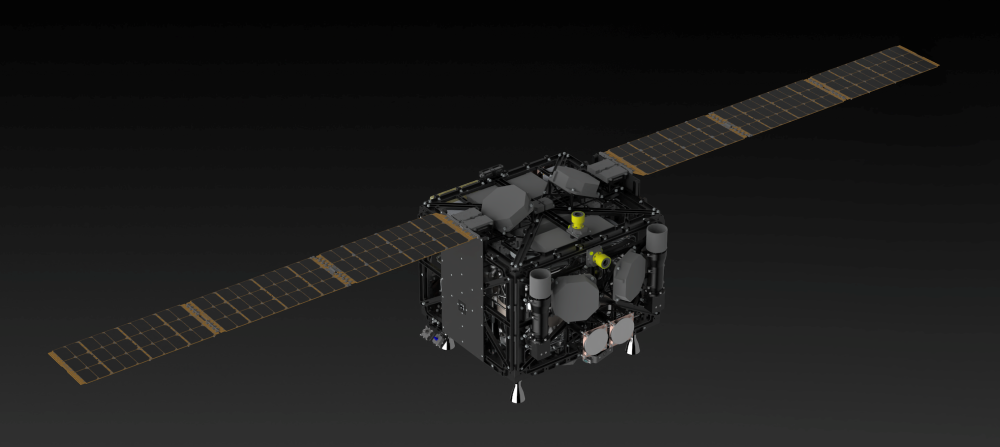This article is published in Aerospace Daily & Defense Report part of Aviation Week Intelligence Network (AWIN), and is complimentary through Nov 07, 2024. For information on becoming an AWIN Member to access more content like this, click here.

Startup aims to mine asteroids for valuable minerals at a lower cost and with a smaller carbon footprint than mining on Earth.
Asteroid mining startup AstroForge has received a license from the Federal Communications Commission (FCC) to operate a commercial mission in deep space.
The Seal Beach, California-based company aims to mine asteroids for valuable minerals at a lower cost and with a smaller carbon footprint than mining on Earth.
The FCC authorization, granted on Oct. 18, gives the company approval to broadcast communications to its Odin spacecraft, which it plans to launch before year’s end as a rideshare onboard Intuitive Machines’ IM-2 lunar lander mission. After piggybacking on the lunar lander for awhile, Odin will depart to rendezvous with and take pictures of an asteroid made mostly of metal, known as an M-type.
“This [FCC] authorization gives us both approval for the flight and the green light to establish communication networks with our ground partners that will enable near real-time data transmission and operational oversight as the Odin spacecraft travels deep into the Solar System,” AstroForge said on Oct. 28.
AstroForge says the approval makes it “the first company to receive a license from the FCC to operate a commercial mission in deep space, which the International Telecommunications Union defines as greater than 2 million km [1.2 million mi.] from Earth.”
In August, the startup raised $40 million in a Series A funding round. It launched its first demonstration spacecraft, Brokkr-1, in 2023. After the Odin mission, AstroForge is planning a third mission in 2025 that would use its Vestri production spacecraft to fly and land on a near-body asteroid.





